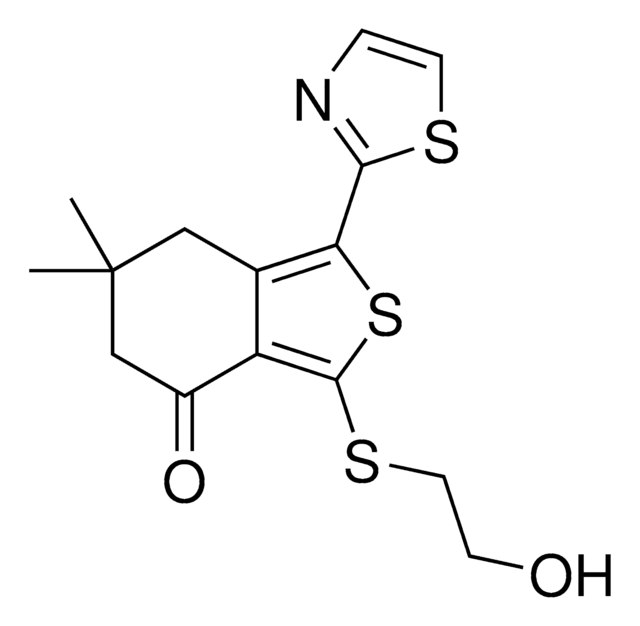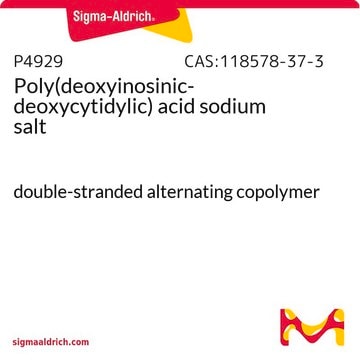KEM0031
Klenow Fragment
Ultra-pure enzyme for nucleic acid modifications
Anmeldenzur Ansicht organisationsspezifischer und vertraglich vereinbarter Preise
Alle Fotos(3)
About This Item
Empfohlene Produkte
Qualität
for molecular biology
Assay
>99% (SDS-PAGE)
Form
buffered aqueous solution
Spezifische Aktivität
5,000 U/mg
Konzentration
5,000 U/mL
Versandbedingung
dry ice
Lagertemp.
−20°C
Allgemeine Beschreibung
Klenow Fragment is a mesophilic DNA polymerase derived from the E.coli Polymerase I DNA-dependent repair enzyme. The enzyme exhibits DNA synthesis and proofreading (3′ → 5′) nuclease activities, and, in the absence of the holoenzyme′s (5′→3′) nuclease domain, displays a moderate strand displacement activity during DNA synthesis. The protein is expressed as a truncated product of the E.coli PolA gene.
Anwendung
Suitable for:
- DNA blunting by fill-in of 5′ overhang
- Second strand cDNA synthesis
- Sequencing
- Site-specific mutagenesis
Leistungsmerkmale und Vorteile
- Ultra-purification process for ultimate enzyme performance
- Highest quality specifications for ultimate product consistency
- Undetectable DNA and nuclease contamination
Komponenten
Supplied with:KEM0042B (10X Blue Buffer)
Einheitendefinition
1 unit is defined as the amount of polymerase required to convert 10 nmol of dNTPs into acid insoluble material in 30 minutes at 37° C.
Physikalische Form
Supplied in 100 mM KPO4, 1.0 mM DTT, 0.1 mM EDTA, and 50% glycerol at pH 7.4 @ 25° C.
Sonstige Hinweise
Source of protein: A recombinant E. coli strain carrying the Klenow Fragment gene.
Unit size: 2,500 U
Ähnliches Produkt
Produkt-Nr.
Beschreibung
Preisangaben
Lagerklassenschlüssel
10 - Combustible liquids
Analysenzertifikate (COA)
Suchen Sie nach Analysenzertifikate (COA), indem Sie die Lot-/Chargennummer des Produkts eingeben. Lot- und Chargennummern sind auf dem Produktetikett hinter den Wörtern ‘Lot’ oder ‘Batch’ (Lot oder Charge) zu finden.
Besitzen Sie dieses Produkt bereits?
In der Dokumentenbibliothek finden Sie die Dokumentation zu den Produkten, die Sie kürzlich erworben haben.
Laure Rittié et al.
Journal of cell communication and signaling, 2(1-2), 25-45 (2008-09-04)
Since molecular cloning has become routine laboratory technique, manufacturers offer countless sources of enzymes to generate and manipulate nucleic acids. Thus, selecting the appropriate enzyme for a specific task may seem difficult to the novice. This review aims at providing
Unser Team von Wissenschaftlern verfügt über Erfahrung in allen Forschungsbereichen einschließlich Life Science, Materialwissenschaften, chemischer Synthese, Chromatographie, Analytik und vielen mehr..
Setzen Sie sich mit dem technischen Dienst in Verbindung.







